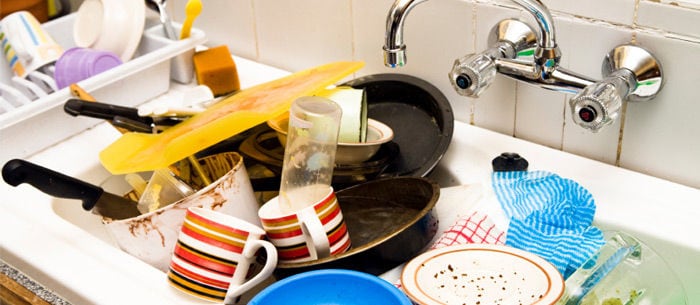Examples abound: “I plan to read that someday,” “Those shoes might work with an outfit for that party next year,” “I will file it later.” This rainy day mentality causes a “decision pile” to be dealt with later.
What is really at the bottom of the pile? The dreaded “P” word as we like to call it: procrastination.
Avoid Procrastination
Procrastination is the putting off of one task for another which may or may not be as important. The tendency to put off until tomorrow what needs to be done today is the biggest obstacle to getting organised. The solution — to make your decisions right away as to whether you’ll keep something and where you’ll put it — is easier than you may think. Understand that putting something off today might provide a temporary relief factor, but that in the end you are creating a much bigger job for yourself.
Recognise the Role of Emotions
What goes hand in hand with the “I will do it tomorrow” attitude is emotion. It’s hard to get rid of your children’s old clothing or toys because they all hold memories. This emotional attachment makes the decision less of a rational decision and more of a personal one. A good solution is to hand those items down to a family member or a friend’s child who can make new memories with them. It might also help to settle for keeping just one special outfit or your favourite toy. Recognising the role emotions play will help us gain control over our things, not vice versa.
Make Organising an Emotion-free Zone
Organising is a task to be managed, so make it an emotion-free zone. We often think we can justify our clutter by saying, “I don’t have the time,” “I don’t have room,” or “I don’t feel like it.” These excuses can be flipped to our advantage by realizing that we are in control of our time, that creating space is a product of purging and sorting, and that dealing with the task instead of the emotion is very liberating!
How to Get Started
Here are some daily mantras to help keep you on track:
- Sort
Making decisions begins with sorting, even if you create files that say “bills to be paid,” “pending,” or “to be reviewed.” - Start
Starting is key; begin with a baby step like a junk drawer. Designate a space where you can store all of the random items in your house that you can’t get rid of, but that don’t seem to fit anywhere. - Take charge
Put yourself in charge of the clutter and your emotions, not vice versa. - Avoid judging
Do not judge how far you have come or how far you need to go. - Don’t procrastinate
Recognise procrastination as a trained behaviour.
Using the techniques above, you should be able to rid your home of clutter and discover that you are in charge of how you live and the kind of environment with which you surround yourself.
